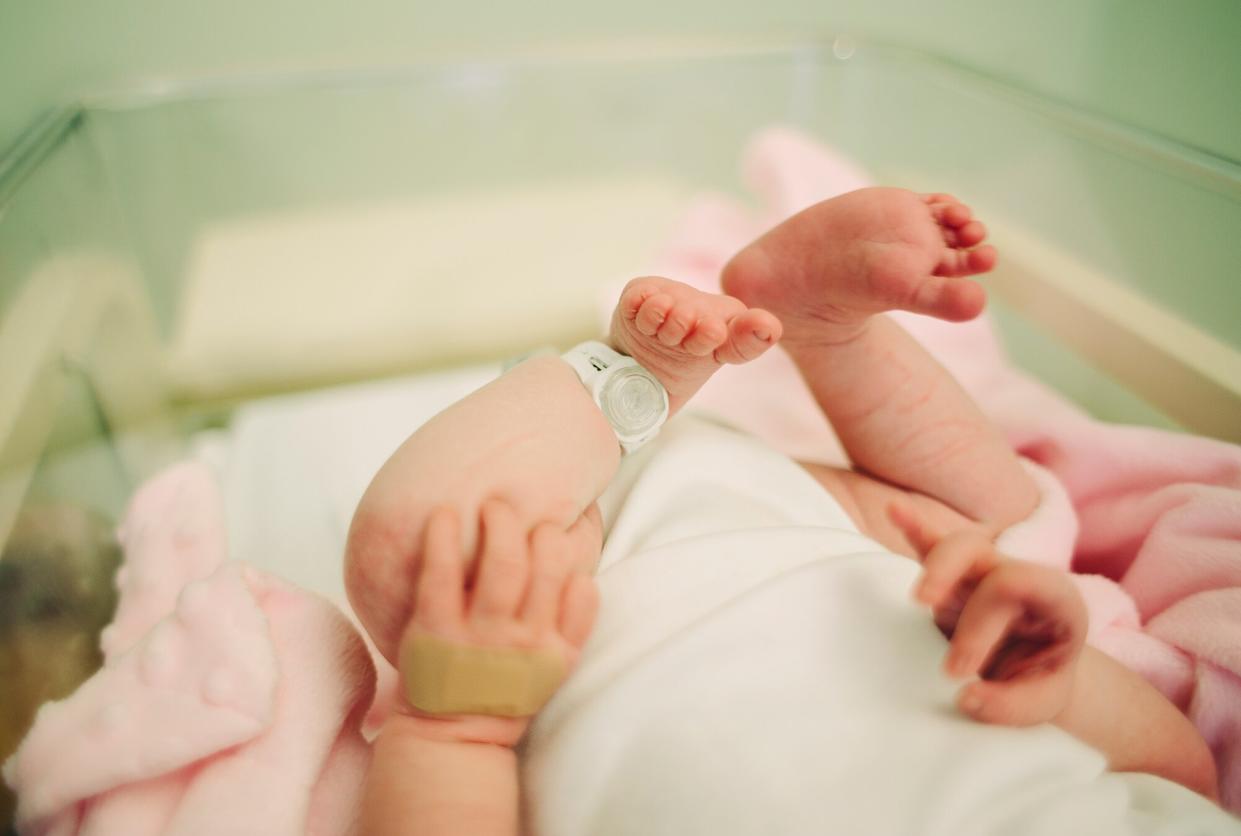Baby Girl Born with Partially Developed Embryo Inside Her Stomach

Getty
A newborn in Israel has shocked doctors with an extremely rare medical case.
The Times of Israel reports that a baby girl was born with an embryo inside her stomach in a case of fetus-in-fetu, a congenital anomaly that occurs in about every 1 in 500,000 births. The girl was born earlier this month at Assuta Medical Center in Ashdod, the hospital said Tuesday.
Ultrasounds and check-ups conducted during the mother's pregnancy revealed that the fetus had an unusually large stomach, and following the baby's birth, doctors' suspicions that there was something inside of the girl were confirmed.
After conducting an X-ray and ultrasounds, doctors found an embryo inside the newborn. "We were surprised to discover that it was an embryo," said Omer Globus, director of neonatology at Assuta.
RELATED: World's Most Premature Baby, Who Had 0% Chance of Survival, Celebrates 1st Birthday: 'Miraculous'
During surgery to remove the embryo, doctors came across two similar sacs in the baby's stomach, leading them to believe there could have been more than one embryo. "We think that there was more than one there, and we are still checking that," Globus said.
Following the successful operation, the newborn is doing well and is expected to make a full recovery.
While they did discover what is classified as an embryo in the newborn's stomach, Globus said that the remains they removed from her body were not fully formed. "It did not look like an embryo as you imagine it," he said. Although doctors could see some bones and a heart, the embryo was only partially developed.
RELATED: 9-Month-Old Twins Conjoined at the Head Are Successfully Separated: 'A Very, Very Rare Anomaly'
A possible explanation for how the condition occurred is that the pregnancy could have began as twins before one embryo was absorbed, Globus explained.
"It happens as part of the fetal development process when there are cavities that close during development and one of the embryos enters such a space," he said. "The fetus inside partially develops but does not live and remains there."

 Yahoo Movies
Yahoo Movies 
